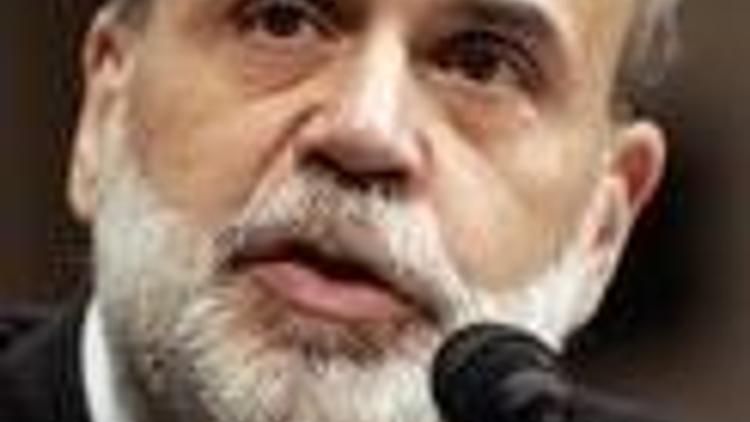Bernanke: U.S. economy challenges Fed policymakers
Güncelleme Tarihi:

Fed Chairman Ben Bernanke told Congress Tuesday that the fragile U.S. economy is being confronted by "numerous difficulties" including persistent strains in financial markets, rising joblessness and housing problems.
At the same time, Bernanke, testifying before the Senate Banking Committee, sounded another warning that rising prices for energy and food are elevating inflation risks, despite the Fed's aggressive interest rate reductions and other fortifying steps over the past year.
The situation, he said, poses "significant challenges" for Fed policymakers as they try to chart the best course for keeping the economy growing, while making sure inflation does not dangerously flare up. All the economy’s problems, including slumping home values, which threaten to make people feel less wealthy and less inclined to spend in the months ahead, represent "significant downside risks" to economic growth.
Over the rest of this year, the economy will grow "appreciably below its trend rate" mostly because of continued weakness in housing markets, high energy prices and tight credit conditions.
Inflation has remained high and "seems likely to move temporarily higher in the near term," he warned.
Indeed, before Bernanke testified, the Labor Department reported wholesale prices jumped 1.8 percent in June. That left inflation rising over the past year at the fastest pace in more than a quarter-century.
"Given the high degree of uncertainty" about the Fed's economic outlook, Fed policymakers will need to carefully assess incoming information about inflation and economic growth, he said.
The Fed in June signaled an end to its nearly year long rate-cutting campaign because of growing concerns about inflation. Bernanke kept up his tough anti-inflation talk on Tuesday but stressed many other problems that could short circuit economic growth. He seemed to be keeping his options open in terms of rates. Given all the risky cross currents, economists believe the Fed will leave rates alone when they meet on Aug 5.
Righting wobbly financial markets is key to getting the economy back on track, he said.
"In general, healthy economic growth depends on well-functioning financial markets," Bernanke said. "Consequently, helping the financial markets to return to more normal functioning will continue to be a top priority," he said.
Bernanke's testimony comes just two days after the Fed and the Treasury Department came to the rescue of mortgage giants Fannie Mae and Freddie Mac, offering to throw them a financial lifeline.
The companies hold or guarantee more than $5 trillion in mortgages - almost half of the nation’s total. The Bush administration is asking Congress to temporarily increase lines of credit to Fannie and Freddie and to let the government buy their stock. The Fed has offered to let the companies draw emergency loans.
The pledges of aid have raised concerns about the government’s role in such financial problems and the risk to taxpayers.
Bernanke said investors are nervous in general because of the cloudy outlook for the economy and credit conditions, feeding a vicious cycle that can be hard to break.
"Many financial markets and institutions remain under considerable stress, in part because the outlook for the economy and thus for credit quality, remains uncertain."
The Fannie and Freddie troubles came on the heels of the failure of IndyMac, a big bank. And, earlier this year, a run on investment bank Bear Stearns pushed the company to the edge of bankruptcy and into a take over by JPMorgan Chase, which was backed financially by the Fed. That was a controversial move that prompted critics to call it a government bailout, putting taxpayer’s money at risk.
The Fed, in new projections, now believes inflation will be higher this year than previously thought, with prices rising as high as 4.2 percent under one inflation measure.
Growth for the year will be sluggish - at best 1.6 percent growth - but not as bad as previously forecast, helped by the governments $168 billion stimulus, including rebates. The unemployment rate, which could rise as high as 5.7 percent this year, is the same as earlier projections.
Photo: AP

